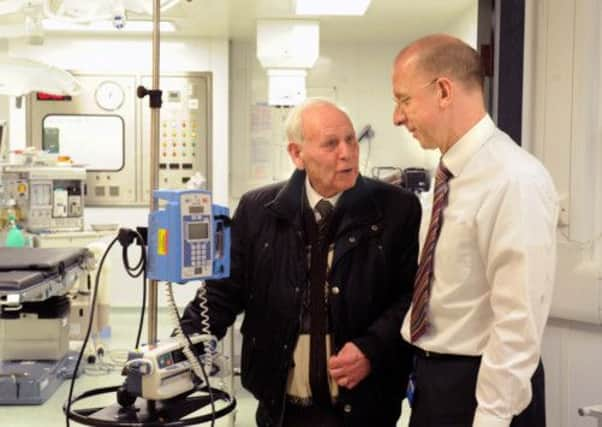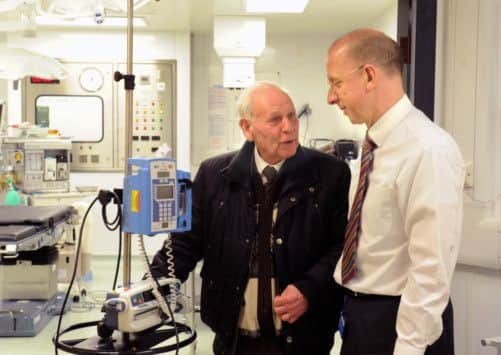Video: 80 years after his kidney op, Arthur returns to children’s ward


Mr Grice, 88, was nine when he went into Sheffield Children’s Hospital in 1934, and said he was carried to the operating theatre in the arms of a porter who sang to keep him calm.
The former plasterer had suffered kidney failure as a result of scarlet fever, and the operation to remove a kidney was paid for by his father’s “penny in the pound” health scheme.
Advertisement
Hide AdAdvertisement
Hide AdMr Grice, who grew up in Heeley, Sheffield, but moved to Nottingham when he married, said: “I have often thought about the hospital and the operation.


“I thought if I could come back and see some of the children who are having treatment today it might inspire them, because they can see that an operation means you can live into old age like me.”
Mr Grice was amazed at how the hospital had changed since he was admitted and said that without the cash from his father’s health savings he could have died, because there was no NHS.
He added: “I can remember the operation so clearly. The porter put me down on the table and said ‘Good luck, son’. There was steam rising from where the instruments were being sterilised.
Advertisement
Hide AdAdvertisement
Hide Ad“Then the nurse put a mask on my face and said I would be asleep in two seconds, and I was. They kept me in for a month to recover and then I had two weeks convalescence in Hunstanton.”
Mr Grice served in Italy during the Second World War and said that, although he had suffered a few problems, life with just one kidney had never held him back from doing anything.
Consultant Prasad Godbole said the hospital now treats more than 500 children a year for kidney-related illnesses and uses keyhole surgery to minimise trauma.
He added: “In the 1930s having a kidney removed was very pioneering, and something which few would have experienced.”